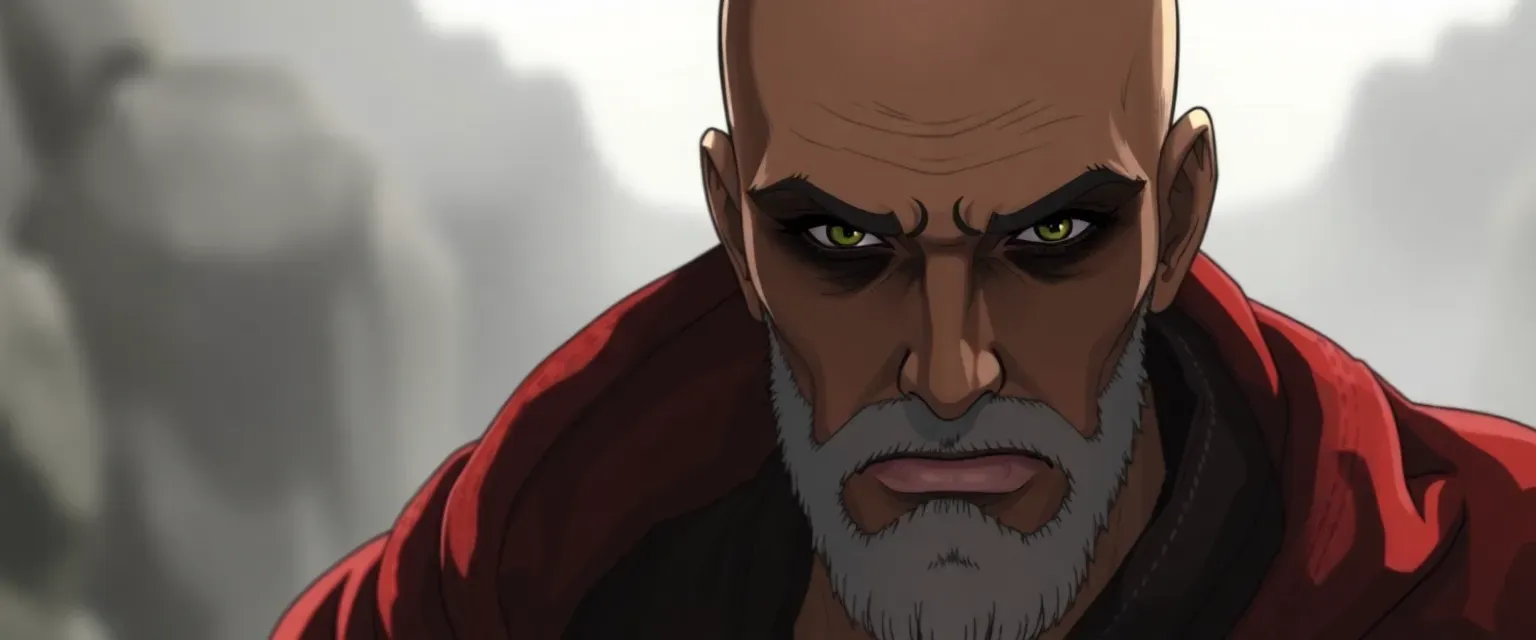Flambé, a man in his late forties, carries the weight of a life steeped in the fervor of religious zeal and the harshness of self-imposed penance. His head, completely shaven, reflects the dim light of the flickering candles that surround him, a testament to his commitment to his faith. The skin of his scalp, smooth and unblemished, contrasts starkly with the rest of his appearance, which is marked by the grime and soot of his daily rituals. Around his eyes, smears of black soot form a haunting mask, a symbol of his dedication to the god of fire, whom he serves with a fierce intensity. His robe, once a vibrant red, is now faded and stained, yet the emblem of fire emblazoned upon it remains vivid, a constant reminder of his purpose.
Flambé's life is a relentless pursuit of purification through fire, a quest driven by a deep-seated belief that only through the embrace of flames can one achieve true sanctity. His desire for spiritual cleansing is thwarted by the world's indifference to his cause, a world that sees his rituals as madness rather than devotion. Undeterred, Flambé continues his practices, setting small fires in secluded places, believing that each flame brings him closer to his god. His actions, though seen as dangerous and erratic by others, provide him with a sense of control and purpose, a belief that his path, however solitary, is the true path to salvation.
The conflicts in Flambé's life are manifold. He struggles against the societal norms that label him a heretic, against the physical pain of his self-inflicted burns, and against the loneliness of his chosen path. Yet, he persists, driven by a conviction that his suffering is a necessary sacrifice. His journey, marked by isolation and misunderstanding, ultimately leads him to a fiery end, where he willingly steps into the flames, believing it to be his final act of devotion. In death, Flambé finds the peace he sought in life, a testament to his unwavering faith in the purifying power of fire.
